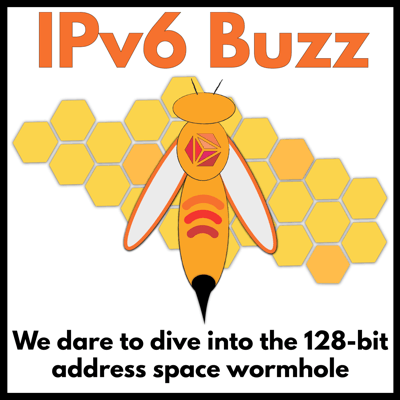The Week in Internet News: AI and IoT Could Lead to Industry 4.0
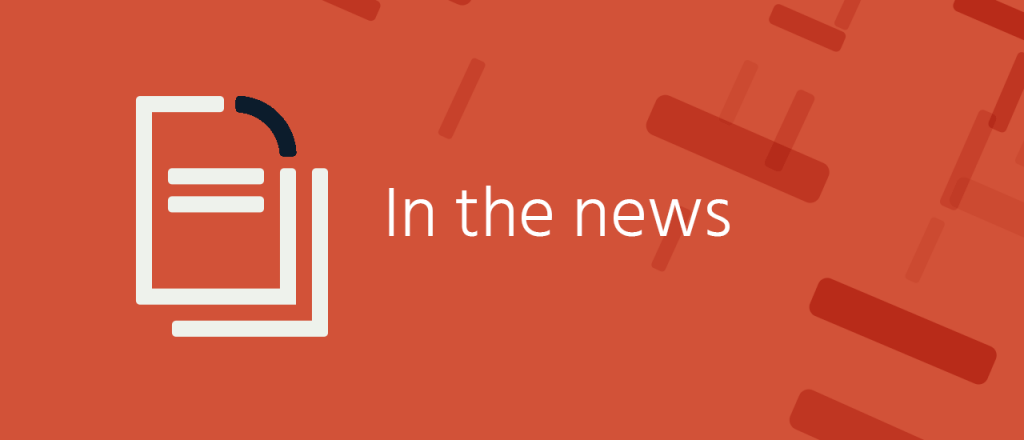
The new revolution: Advances in the Internet of Things and Artificial Intelligence are leading to a fourth industrial revolution, Ars Technica suggests. This so-called Industry 4.0 represents “huge changes in much of the technology we deal with in our daily lives. Some of those changes have been for the better, making our interaction with machines and information more natural and more powerful. Others have helped companies tap into consumers’ relationships, behaviors, locations and innermost thoughts in powerful and often disturbing ways.”
Security gaps: But all is not well in IoT land. Legacy problems related to networking technologies are making IoT security “as bad as it gets,” IoT Hub reports. In addition, staff remotely monitoring IoT sensors don’t have the experience to fix problems.
They’re keeping their eyes on you: The Indian government has found a way to track WhatsApp messages without breaking encryption, Business Insider reports. The surveillance technique involves the government asking the Facebook-owned messaging platform to implement an identifier that would allow law enforcement officials to pinpoint who sent the message without reading it.
A new way to pay: In other Facebook-related news, the company is planning to launch a new cryptocurrency called Libra, The Verge Continue reading
Applications for 2019 Chapterthon Now Open
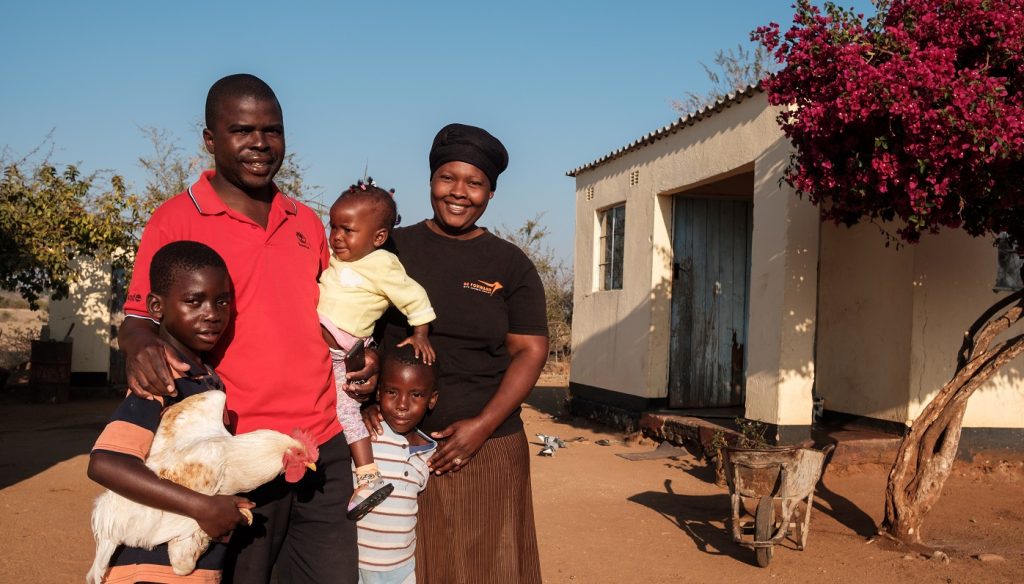
We’re happy to announce that the call for applications for the 2019 Chapterthon is now open.
Our world is more digitally connected than ever before, yet barriers still remain for the half of the world’s population who are unconnected.
For 2019, Chapterthon projects will help with Connecting the Unconnected. The Internet for everyone, including every last person on the planet, and we won’t rest until each person has the option of choosing to be connected.
Want to take part in this challenge?
We are looking for creative, innovative, and impactful short-term projects from our Chapters and Special Interest Groups (SIGs) that are for the community, with the community, by the community.
Find out how to apply at: https://www.internetsociety.org/grants/chapterthon/2019/
Only one project will be selected per Chapter to participate in this contest. The selected projects then participate in the global Chapterthon contest. The three winning projects will receive an award!
To guide you through this process, we’ve organised an info session on 27 June 2019 at 11:00 UTC.You can register in advance at:
https://isoc.zoom.us/meeting/register/5b0fba421a1ce3737510d14dfea9e911
All other information about the Chapterthon is available here:https://www.internetsociety.org/grants/chapterthon/2019/
Take part and help us connect the world one community Continue reading
2019 Hackathon@AIS: Testimonials from the Trainers
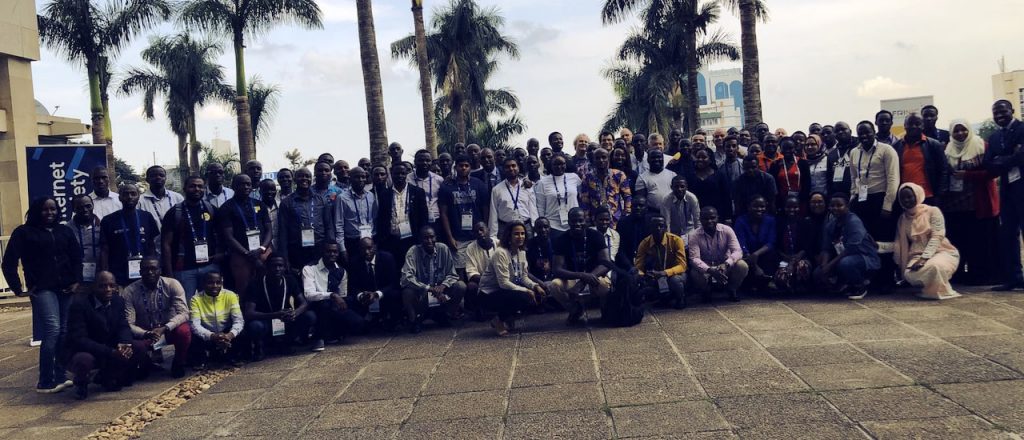
What is Hackathon@AIS?
The Internet, with its endless supply of knowledge and information, has become a strategic element in nearly all economic endeavors in Africa. To build tactical awareness among primary stakeholders as well as resiliency and robustness into Internet-enabled grids, the Internet Society and AFRINIC have organized the third Hackathon@AIS event, which is taking place in Kampala, Uganda, from 19-20 June 2019.
Network engineers, software developers, and computer science students from across Africa are gearing up for another round of collaborative computer programming aimed at introducing participants to existing and evolving Internet standards development that can help further their careers through shared skillsets.
The first Hackathon@AIS was held in 2017 in Nairobi and attracted 39 participants from 12 countries. The second event, held in 2018 in Dakar, attracted 75 participants from 15 countries. Both events consisted of three different tracks led by expert facilitators from across the globe. This year, the event consists of five tracks spanning different fields, and again we’ve called on expert facilitators from around the world to share their expertise and guidance.
The Hackathon is a breeding ground for talent that can change the world through innovation and create productivity and efficiency in business. Continue reading
How Regulation Could Break the Internet: In Conversation with Andrew Sullivan

A full day before Internet Society’s President and CEO Andrew Sullivan takes the stage at the world-renowned policy institute Chatham House at Cyber 2019, you’ll have a chance to have an in person discussion with him about the changes regulation may be bringing to our online world.
From the way we connect, share, learn, and work, the Internet has changed the world.
It has also brought challenges – and increasingly, governments have addressed these challenges with regulation.
But could this create unintended consequences? Is it possible to regulate the Internet while protecting its openness, interoperability, and global reach? The Internet Society in collaboration with Chatham House will explore these questions tomorrow at How Regulation Could Break the Internet: In Conversation with Andrew Sullivan.
Here’s how you can join:
- Register to take part in person. It’s a first come first serve basis!
- Watch the event on Livestream.
- Join us on Twitter using the hashtag #DontBreakTheInternet
The post How Regulation Could Break the Internet: In Conversation with Andrew Sullivan appeared first on Internet Society.
Online Trust Audit Updates & Translations Now Available

A slightly updated version of the Online Trust Audit & Honor Roll is now available in English, French, and Spanish.
Changes include:
- Accidentally marked Google Play as top scorer in Appendix C (instead of Google News)
- Missing bar in graph on page 5
- Several minor spacing, grammar, and miscellaneous edits
The Online Trust Audit & Honor Roll assesses nearly 1,200 organizations, recognizing excellence in online consumer protection, data security, and responsible privacy practices. This Audit of more than 1,200 predominantly consumer-facing websites is the largest undertaken by OTA, and was expanded this year to include payment services, video streaming, sports sites, and healthcare.
This is the first time in the Audit’s 10-year history that we’ve translated it, and we’re proud to bring it to a wider audience. Going forward, we will work toward adding more global sectors and regions into the report findings.
The Trust Audit Planning Committee, open to Internet Society organization members, has already had its first meeting to discuss the methodology for next year’s Audit. A public call for comment on the draft methodology will come later this year, so watch this blog or follow us on Twitter or Facebook to keep up with our Continue reading
Uruguay Joins Others Taking Action to Strengthen IoT Security
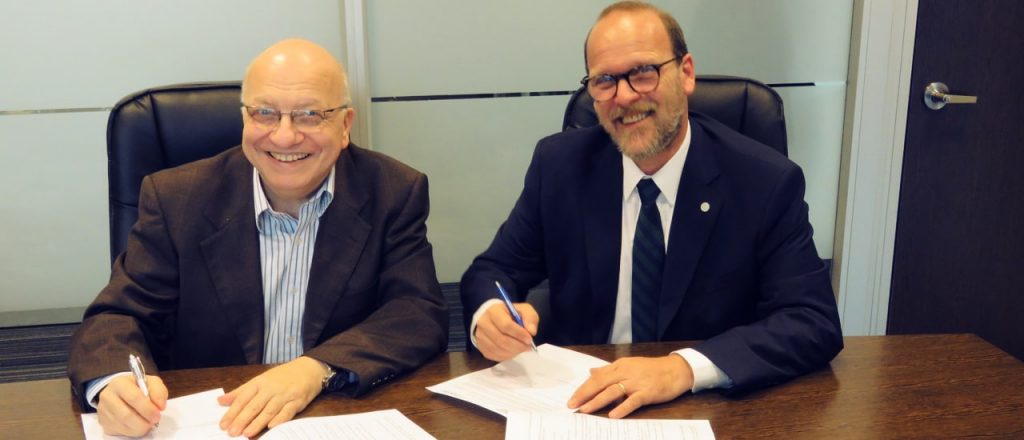
The use of Internet of Things devices has substantially increased in recent years and the trends indicate that the number will continue to grow significantly. In this environment of rapid technological adoption, the inclusive and collaborative approach is essential to face the challenges and take advantage of the opportunities that arise.
Specifically, to overcome the privacy and security challenges associated with the growing number of Internet of Things (IoT) devices and systems, the Internet Society signed an agreement with the Agency of Electronic Government and the Information and Knowledge Society of Uruguay (Agesic). The agreement will encourage us to strengthen our collaborative ties to develop a multistakeholder process that will seek to issue recommendations on IoT security in the country.
The recommendations issued will be useful to guide the processes of development of national and regulatory policies in Uruguay. In addition, the agreement focuses on two broad areas: the exchange of information and the development of training materials on consumer protection and network resilience.
This is undoubtedly great news for the region, since Uruguay joins a group of countries that have opted for the multistakeholder processes to strengthen the security of IoT devices. The most recent example is Canada, whose Continue reading
The Week in Internet News: Hackers Eye Security Cameras
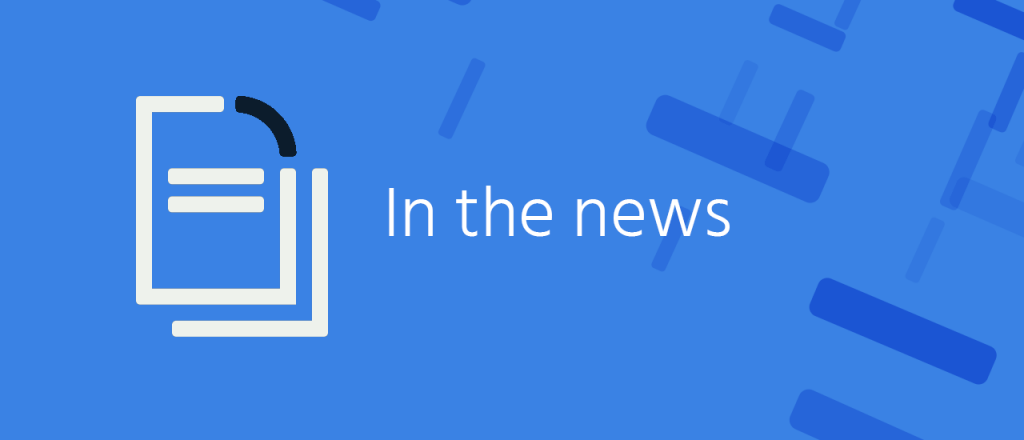
Big targets: Internet-connected security cameras make up nearly half of all the Internet of Things devices compromised by hackers, ZDNet reports. Smart hubs and network-attached storage devices are next on the hit list. The average U.S. household contains 17 Internet-connected devices, while the average European household has 14.
New rules for the IoT? A U.S. House of Representatives committee has approved an IoT security bill that would create security standards that vendors would have to apply before government agencies could buy IoT devices from them, Nextgov says. The legislation aims to leverage the government’s substantial purchasing power to drive security in the IoT market.
Cleaning house: The Chinese government has blocked several foreign media sites in the name of cleaning up the Internet, Reuters reports. China’s campaign will punish and expose websites for “illegal and criminal actions” and for failing to “fulfil their obligation” to take safety measures or prevent the theft of personal information, the government says.
Exposing anti-encryption: The Electronic Frontier Foundation and other groups are going to court in an attempt to expose the U.S. Department of Justice’s efforts to break Facebook’s Messenger encryption, ZDNet reports. The groups are asking a court to unseal Continue reading
European Chapters Meeting: Consolidation, Trust, and More on the Agenda
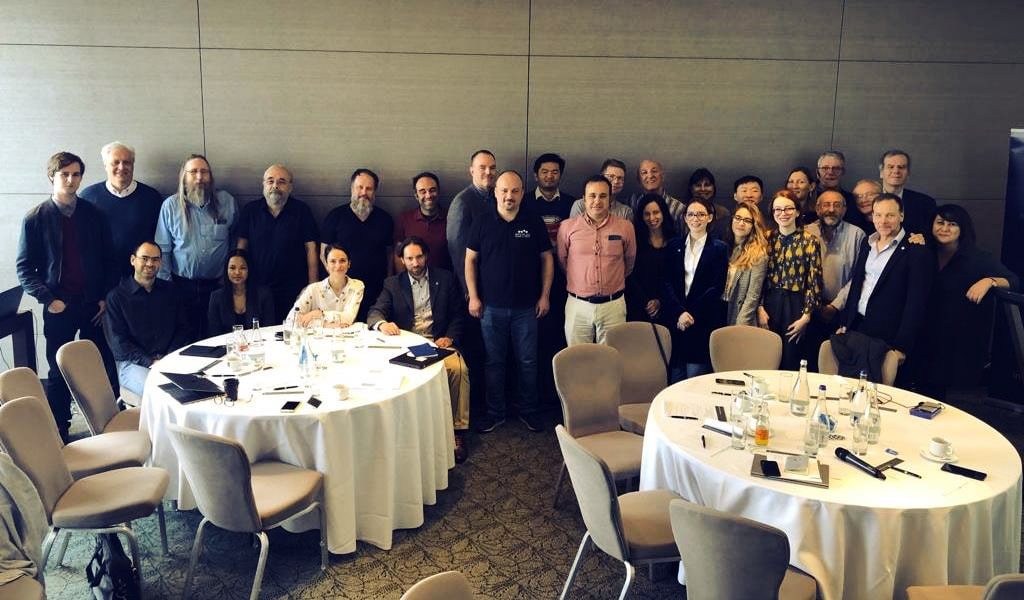
The 2019 European Chapters Meeting took place from 9-10 May in Bucharest, Romania. (Watch the livestream here.)
The two-day event gathered 31 participants consisting of 22 fellows coming from 20 Internet Society Chapters in the European region. The meeting agenda focused on discussions around Consolidation on the Internet Economy, Encryption, Consumer IoT Privacy & Security, and the Internet of Food.
This meeting was part of a series of events the Internet Society is organizing in 2019 across regions. It was particularly important because of the valuable feedback the Chapters provided on the key questions of the 2019 Global Internet Report and the direction of the long-term objectives for Strategy 2025.
- Carl Gahnberg, Policy Advisor at Internet Society gave a presentation on consolidation and the 2019 Global Internet Report (GIR). The importance of connecting with different audiences makes the 2019 GIR relevant not only for the Internet Society community, but also policymakers and the broader public. The report shows that trends in Internet Applications, the Access Provision, and Service Infrastructure and looks at trends of consolidation in the Internet economy. Unlike in past years, the report doesn’t provide recommendations but outcome questions. Participants discussed these outcome questions and the main Continue reading
Caribbean Community Gathers Together to Discuss Improving Connectivity in the Region
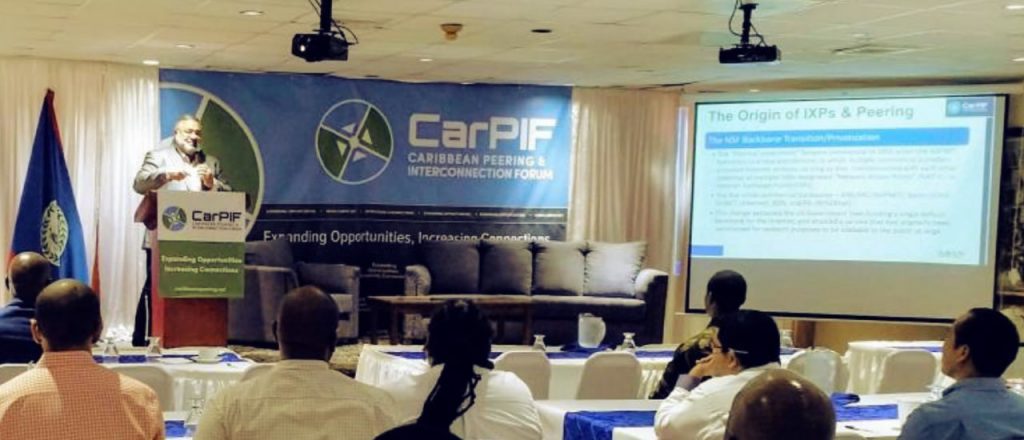
Cooperation has been key to expanding Internet access around the globe. Ten years ago, the African region created AfPIF, a space focused on collaboration about among regional actors on topics related to peering and interconnection. Inspired by that project, in 2014 I approached Bevil Wooding to create a similar space for the Caribbean.
In recent years, the Caribbean has been losing its traditional industries, such as sugar and banana production. In this context, the Internet can be seen as a good opportunity to leverage the local economy. Fortunately, the idea gained the support of the Caribbean Telecommunications Union (CTU) and the Caribbean Network Operators Group (CaribNOG). That’s how the Caribbean Peering and Interconnection Forum (CarPIF) was born.
From its inaugural meeting in 2015, CarPIF has sought to bring together key infrastructure, service, and content providers to improve network interconnection, lower the cost of connectivity, and increase the number of Internet users and services in the Caribbean. This year, the meeting will be held from 12 to 13 June in Grenada, with the aim of highlight the active role played by the Organization of Eastern Caribbean States (OECS) in the successful deployment of Internet Continue reading
A New Survey Shows Few Actively Encrypting More Because of Internet Distrust
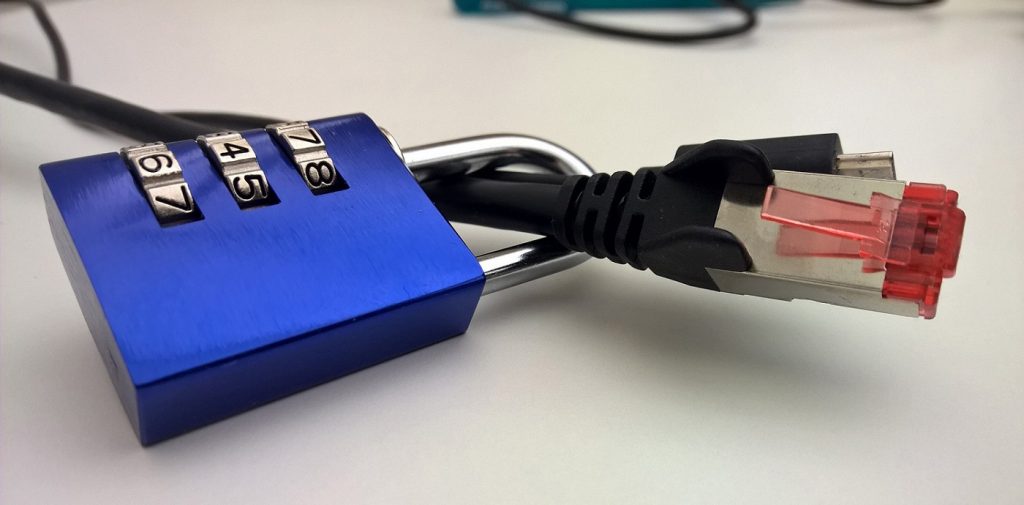
A new survey shows that only a handful of people who said they distrust the Internet are actively choosing encryption in response.
The survey, called the CIGI-Ipsos Global Survey on Internet Security and Trust, was conducted by Ipsos on behalf of the Canadian think tank the Centre for International Governance Innovation (CIGI). The Internet Society (ISOC) and the United Nations Conference on Trade and Development (UNCTAD) are partners in the survey, which is now in its fifth year.
The survey asked more than 25,000 individuals in 25 economies their opinion on Internet security, privacy, and trust.
Trust is very personal. The word “trust” may mean different things to different people. What we consider to be trust is constantly evolving and is shaped by many factors including our culture, our education, and our experience.
The survey asked users how much they agree or disagree with the statement “Overall, I trust the Internet”. We did not ask users how much they trust the Internet to perform in specific ways or to provide a specific user experience. However, the question provides a rough indicator of positive or negative attitudes towards the Internet.
74% of respondents in 2019 agreed with the statement Continue reading
Americans Deserve Better User Privacy

On May 15th, the White House tweeted it had created a new online surveying tool for Americans to report instances of social media censorship due to political bias. Setting aside the politics of this move, there are serious privacy and security concerns that come with hosting such a survey on its website.
When users visit the reporting site, they’re required to give personal information including their name, citizenship status, zip code, phone number, and email address, all before any questions are actually asked about the alleged social media bias. They are then prompted to include links to their social media platforms, usernames, and other digitally-intrusive information.
Sound fishy? It should.
That is a significant amount of personal, highly-identifiable information to give up as a part of a selective survey. The irrelevance of most of this information to the survey’s purpose begs the question: why does the government need it and what will they use it for?
Neither question is answered anywhere in the survey or its related materials. That alone poses a serious privacy concern. If users don’t know how their data will be used, how can they trust that their information is secure and being used only for the Continue reading
The Week in Internet News: Better Broadband Boosts Employment
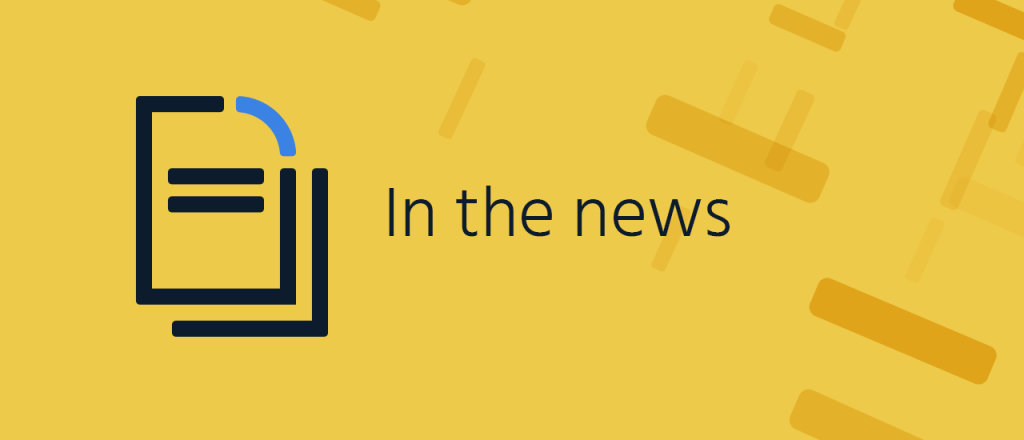
High-speed jobs: A new study suggests that better broadband service lowers unemployment rates, Vice.com reports. Researchers from the University of Tennessee at Chattanooga and Oklahoma State University tracked broadband availability and unemployment rates in Tennessee and found that counties with access to high-speed broadband had a slightly lower unemployment rate than those with slower service.
More moderation: YouTube plans to remove white supremacist, hate speech and hoax videos, the Washington Post reports. The new policy will go farther than YouTube’s former prohibition on videos that promote violence or hatred against people based on their age, religious beliefs, gender, religion, immigration status and sexual orientation.
Encryption fight: Yandex, a provider of Internet-related services in Russia and the former Soviet Union, has reached an agreement with the Russian FSB security service on handing over encryption keys, Reuters reports. Details of the agreement weren’t immediately available. Yandex had originally resisted the FSB’s demand for encryption keys, Reuters says.
Bigger than the weather: U.S. residents believe fake news is a bigger problem than climate change or racism, according to a new survey detailed at Business Insider. Half of those surveyed said made-up news is a major problem, while just 46 said the Continue reading
Hong Kong Chapter: Why Aren’t There More Women in Tech?

The tech industry in Hong Kong and across the world remains male dominated. Why aren’t there more women and what can be done to fix this?
To mark International Girls in ICT Day, which aims to encourage girls and young women to work in information and communications technology, the Internet Society Hong Kong Chapter organized an event to tackle these questions. Ladies X Tech X Gents: How Are the Three Compatible? brought together four successful developers to lead the dialogue:
- Ivy Luk, Sales Engineer at Clare.AI (an Artificial Intelligence digital assistant solutions provider)
- Emma Wong, Organiser of Google Developer Group and Women Techmakers Hong Kong
- May Yeung, Director of Internet Society Hong Kong Chapter
- Rick Mak, Co-Founder of Oursky (a web and mobile application development company)
Why are there so few women in the tech industry?
A common observation among the speakers was the high dropout rate of women developers in the tech industry – amid the already low women to men ratio. The speakers noted that it drops from roughly 3:7 at school to 1:10 at work.
One of the main reasons women leave the tech industry is the gender stereotype that it is a masculine profession. Continue reading
Community Week: Share Ideas to Help Make the Internet Stronger

The role people play in our community is vital for an open and trustworthy Internet for everyone. We know that without the knowledge, experience, and contributions of our members the Internet Society wouldn’t be complete.
Chapters Leaders Training in Latin America and the Caribbean
The Chapters of the Latin American and Caribbean (LAC) region have come together to implement a training program that allows members to work with their local Chapter, contributing to the four focus areas of the Internet Society’s Action Plan 2019. The first LAC Capacity Building Program for Chapters was successfully launched last week, with the participation of 182 people out of almost 1000 applicants.
This initiative started at the beginning of the year as a result of a working session held with LAC Chapters leaders. During the session, it was determined that capacity building was an important leverage point for Chapter development and it would be a tool to achieve the Chapters’ local goals during 2019. In the process, three important phases were defined for the program:
- Capacity Building: Training in our different focus areas
- Community engagement: Allocation of trained members in Chapters to support local initiatives
- 2020-2025 Planning: LAC Chapters Workshop to define LAC Community Continue reading
On the 7th World IPv6 Launchiversary, How About Listening to a Podcast About IPv6?

On this 7th “launchiversary” of World IPv6 Launch, I thought I’d share a way I’ve enjoyed learning more about IPv6 over the past year. I like listening to podcasts while I’m running or driving, and a show that’s in my playlist is “IPv6 Buzz” where IPv6 veterans Ed Horley, Scott Hogg, and Tom Coffeen “dive into the 128-bit address space wormhole.“
Anyone working with IPv6 for any amount of time, and particularly IPv6 advocacy, has probably read or heard something from Ed, Scott, or Tom. They’ve been explaining and promoting IPv6 for a long time in their own individual endeavors.
This podcast, which launched one year ago today, brings the three of them together with a wide range of guests from across the industry. Even with all my own years of IPv6 activity, I’ve learned a great amount about IPv6 security, recent drivers of deployment (including state task forces), tools and suggestions for promoting IPv6 growth. They dove deeply into IPv6 inside the IETF with Fred Baker, talked about going IPv6-only with Veronika McKillop of Microsoft, got into Happy Eyeballs with Dan Wing, and most recently explored enterprise IPv6 issues with Enno Rey.
Part Continue reading
Want to Make a Difference in Your Community? Apply for a Beyond the Net Medium or Large Grant

Applications are now open for the 2019 Beyond the Net Medium and Large Grants. All Internet Society Chapters and Special Interest Groups (SIGs) in good standing are eligible to apply.
For more than a decade, Beyond the Net Medium and Large Grants and the former Community Grants Programme have played a major role in empowering people to improve their communities via the Internet. These programmes have reached thousands of people by helping to bring to life community-driven projects that teach digital skills, enable continued trust in the Internet, build infrastructure in rural and underserved areas, and connect Indigenous communities.
The Beyond the Net Funding Programme is now part of the Internet Society Foundation, but will continue to support the excellent work of our Chapter and SIG communities. The Medium and Large Grants are available for funding at a maximum of USD $30,000.
Applications are open until 31 July 2019. For more details, visit Beyond the Net Medium and Large Grant Programme page.
While you’re there, check out everything else the Foundation is doing!
The post Want to Make a Difference in Your Community? Apply for a Beyond the Net Medium or Large Grant appeared first on Internet Society.
The Week in Internet News: Germany Considers Banning Encryption on Chat Apps
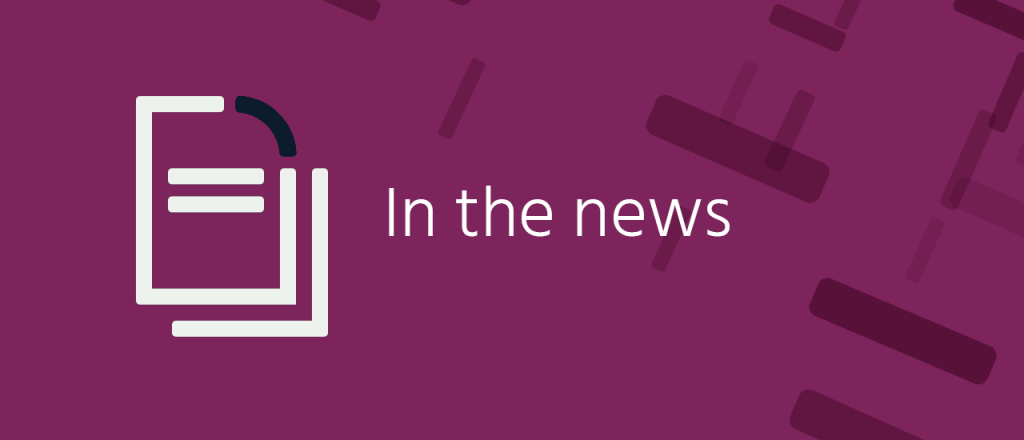
Transparent chatting: The German Ministry of the Interior is considering new regulations that would ban end-to-end encryption on chat apps, The Register reports. The proposed rules would require operators of chat services to provide plain-text records of users’ chats under court order. Meanwhile, by saying it sometimes needs access to user communications, Facebook is creating a blueprint for German officials, Forbes says.
No, thanks: In other anti-encryption news, the U.K. Government Communications Headquarters, or GCHQ, has issued its own proposal to allow spy agencies to listen into chat and other encrypted communications. But U.S. tech companies, cryptography experts, and human rights groups, lined up in opposition to the proposal, notes Fortune. The Internet Society has also added its name to the letter.
Attacking encryption another way: Meanwhile, a new study suggests a quantum computer could break 2048-bit RSA encryption in about eight hours, reports the MIT Technology Review. The researchers “have found a more efficient way for quantum computers to perform the code-breaking calculations, reducing the resources they require by orders of magnitude.”
No need to ban encryption on the IoT: At the risk of this being too encryption-focused this week, we look at one more related story: Continue reading
Reducing Barriers: A Recap of the Webinar on Digital Accessibility

Accessibility for persons with disabilities isn’t just for people who are disabled. It benefits everyone – and there’s even a business case for it, too. That was the key message of the Global Accessibility Awareness Day (GAAD) event organized by the Internet Society Accessibility Special Interest Group (A11ySIG). The webinar was A11ySIG’s very first, only a month after its formation!
The purpose of GAAD is to get people talking, thinking, and learning about digital access and inclusion (including web, software, mobile, etc.) and about people with different disabilities.
The webinar “Digital Accessibility for Persons with Disabilities” was facilitated by A11ySIG’s president, Muhammad Shabbir Awan. Dan York, the Internet Society’s Director of Web Strategy was a guest speaker together with the founders of A11ySIG.
Joly MacFie, A11ySIG’s admin, outlined the historical context of the Special Interest Group, which grew from the Disability and Special Needs Chapter, the first non-geographical Chapter. Joly paid tribute to the Chapter’s Cynthia Waddell, who was a pioneer of web accessibility and an inspiration to many.
Dan York reinforced the Internet Society’s vision “The Internet is for Everyone” and stated its goal for accessibility across its websites. He explained that the work being done includes:
- Accessibility Continue reading
Growing an Internet Exchange Point in Burkina Faso
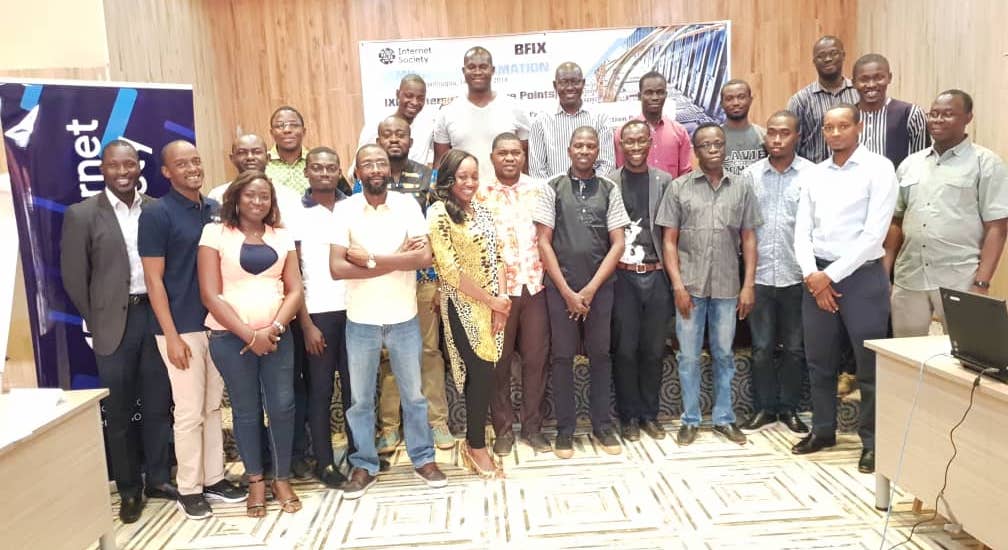
BFIX, the Burkina Faso Internet exchange point, was established as an association in Burkina on February 19, 2015 by Internet Service Providers (ISP), mobile telecommunication operators, and some public institutions such as the University of Ouagadougou and the government agency in charge of promoting information and communication technologies (“Agence de Promotion des Technologies de l’Information et de la Communication – ANPTIC”).
BFIX started exchanging the first bits of data among peers on June 26, 2015, during the 11th edition of the national “Internet Week.” BFIX’s service was officially launched on July 10, 2018 as part of the West Africa Regional Communication Infrastructure Project (WARCIP) – Burkina, among other projects.
Despite the launch and the operationalization of BFIX, a number of challenges remained, mainly attributed to the implementation of IXP best practices. In particular the network design was not optimal. Moving forward, the local community, through the voice of its executive director, Millogo Jean Baptiste, reached out to the Internet Society Africa Regional Bureau for technical assistance. A training session was planned and carried out between the 14th and 18th of January 2019 in Ouagadougou under the Internet Society and Facebook IXP Partnership project.
The one-week training had two Continue reading
Finding Common Ground on U.S. Net Neutrality

After more than a decade of regulatory ping pong, net neutrality’s future in the United States is still unclear.
Since 2004, FCC rulemakings have been caught in a vicious cycle. They have been passed, fought in court, and returned to the FCC with minor (and sometimes major) revisions. In the last few years there have also been numerous attempts to pass legislation, cementing net neutrality once and for all, but nothing has succeeded in Congress.
Recognizing the importance of finding a sustainable solution, the Internet Society proposed a collaborative process to help experts find common ground on this complex policy issue. Starting in June 2018, we convened an ideologically diverse group of experts to create a baseline set of principles for an open Internet.
The Net Neutrality Experts’ Roundtable series included representatives from the technical community, edge providers, academia, Internet service providers, industry associations, and both left- and right-leaning civil society groups.
In a series of meetings over ten months, participants discussed how to create a sustainable solution for net neutrality that protect the interests of Internet users while fostering an environment that encourages investment and innovation.
Ultimately, the group was able to create a consensus-driven set of bipartisan principles for an open Continue reading
